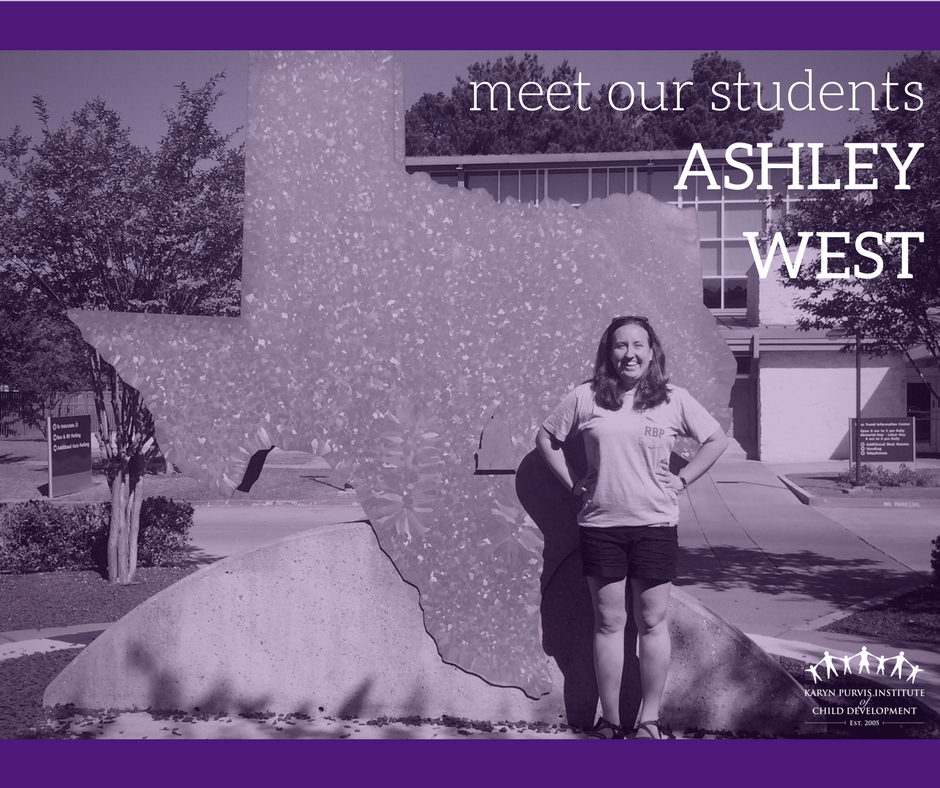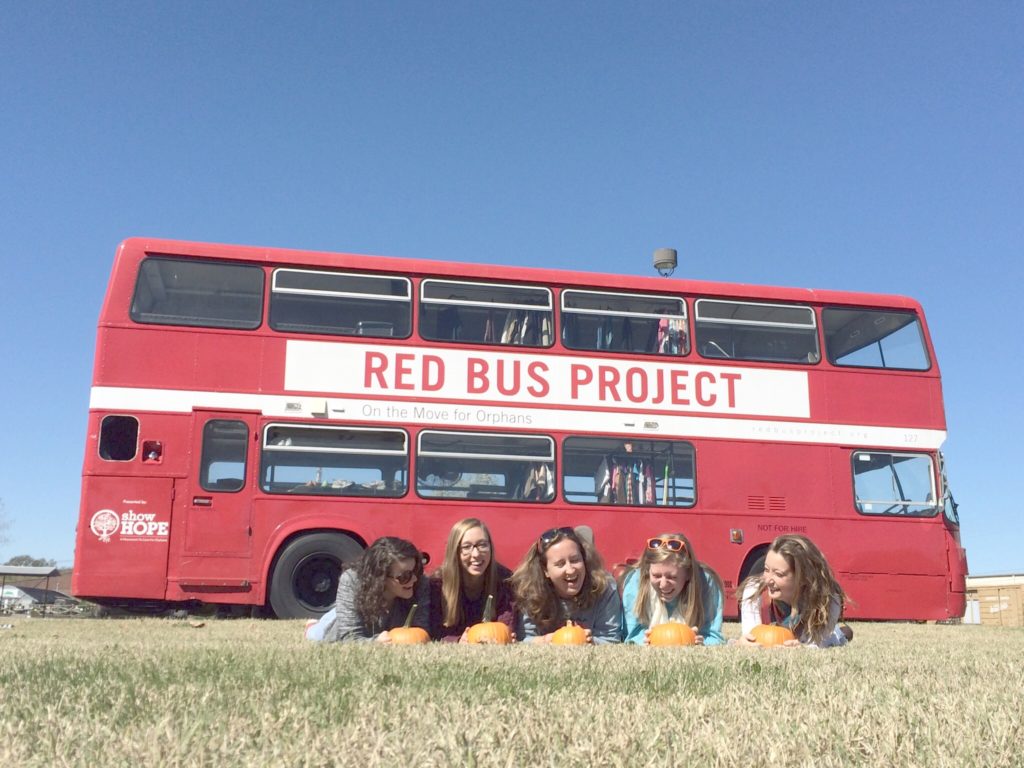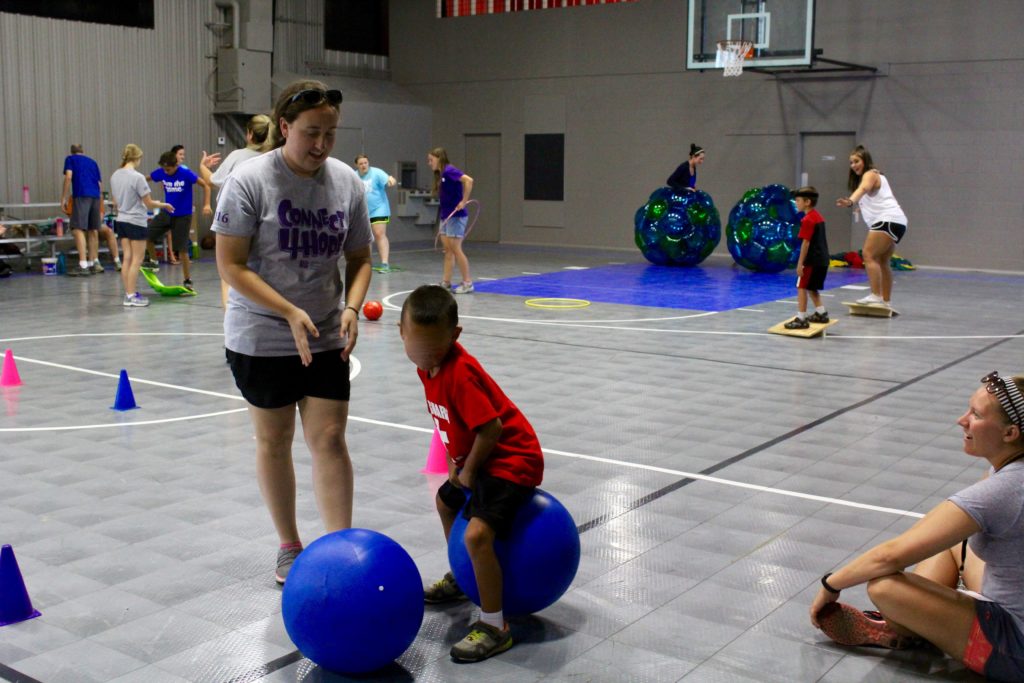by Emmelie Pickett
In 2015 The Purvis Institute launched the Master of Science in Developmental Trauma program. This program is designed for students who wish to pursue advanced academic study or professional practice. We have been fortunate to welcome some fantastic students to our program, including Ashley West, who started the program in 2016. We sat down with Ashley to talk about her experience in the MDT Program.

How did you come to know about the program and the KP ICD?
I learned about you guys from Show Hope! Their student initiatives team came to my college campus when I was an undergraduate. I’d always known that I wanted to work with kids from hard places, and Show Hope was traveling around the country telling college students about how to help vulnerable kids. After I graduated I ended up interning with Show Hope’s Student Initiatives for two semesters. During my first semester, we got to attend the Empowered to Connect Conference via simulcast. I remember where I was sitting when I saw my first video clip of Dr. Purvis calming a child. I just remember thinking, “I didn’t know that there were people who knew how to help these kids!” I applied for the graduate program shortly after that.

We’re so glad you’re here! How is the program so far?
I really enjoy what I’m studying, so that makes the “work” easy to do. I don’t dread my classes or studying. I love being involved in the KP ICD research projects as well.
Tell us about some of your research interests.
As someone pursuing her Master’s in Developmental Trauma, I’m obviously interested in how to help kids from hard places. But more than that, I’m curious about the application of TBRI® in different cultural contexts. I’ve done quite a bit of international traveling, so I’m really interested in how TBRI® would work in other countries and taking cultural differences into account.
What have you found to be most challenging about the program?
For me, it was tough just coming to TCU and not knowing anybody in Fort Worth. I have to get on an airplane to get home. It’s been fun to figure things out on my own, but also tough at times.

Can you tell us about a typical day in the DT program?
Most days aren’t alike, but usually there’s class, then a lab meeting. Then we’ll usually spend a few hours grading or working on a project, and then we have classes at night, too.
Your first week of the program was spent volunteering at one of our partner TBRI® Camps. What was that like?
I didn’t have a buddy, which helped because I could kind of hang back and observe and learn from the other students until I felt more comfortable. The Buddies (TCU Child Development undergraduate students) did an amazing job! What surprised me the most was to see how quickly they formed connections with the kids, and how drastically the kids behaviors could change in such a short time. One example that comes to mind was when I was hanging out with a little guy at the pool. He was scared of wasps, and there were unfortunately many wasps flying around that day. A couple of wasps came near him and he sort of flipped his lid and the lifeguard got onto him to remind him not to run. I was able to playfully teach him to stay calm and to find an adult when a wasp got too close. A few minutes later he was on the diving board, and sure enough a wasp came toward him. I watched him self-regulate and jump in the water to swim right to me. It was so cool to see how quickly he picked up the skills he was learning! Camp was a great way to start because I’ve seen TBRI in action and I can apply what I’m learning to what I experienced there.

What are your hobbies and interests? What do you like to do when you’re not studying?
I am a huge Chick-fil-A fan! I was on the marketing team for my local store when I was in college and I’ve worked at their non-profit summer camp. And my favorite Chick-fil-A sauce is Polynesian. I also love theater. I was very into technical theater in highschool and college.
What do you hope to do when you graduate from the program?
I’ll graduate in 2017. I’ve been looking at potentially working in a school system and doing behavioral therapy. I’d love to find a way to keep educating people about TBRI® while also working directly with kids. Working in a school system seems like a great place to do that.
Thanks so much, Ashley! We’re so glad to have you in our program.
For more information on the Master of Developmental Trauma program, visit our Graduate Students page.